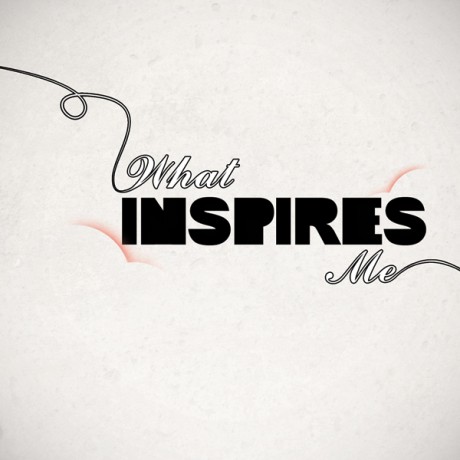There is no such thing as a perfect resume. This is particularly true when changing industries, functionalities, or upgrading a job role. Career transitions require a higher-level targeted approach. The best resume, employers say, is the one that portrays the candidate as a solution-provider. Prove you can make their problems go away and you'll get hired.
Randolph L Stevens, president and CEO of career marketing and outplacement firm R.L. Stevens & Associates Inc., offers these 10 resume mistakes that may keep your from getting the job you seek.
Randolph L Stevens, president and CEO of career marketing and outplacement firm R.L. Stevens & Associates Inc., offers these 10 resume mistakes that may keep your from getting the job you seek.
1. NO CONNECTION TO EMPLOYER NEED
Make your job search about them, not you. Pitch relevancy. Perform in-depth research and conduct a "SWOT" analysis of their needs. Identify their Strengths, Weaknesses, Opportunities for growth, and Threats to growth. Investigate two of their biggest competitors similarly. Present your achievements to quickly demonstrate your understanding of not only an employer's needs, but challenges within the industry. This is especially critical if you're transitioning to another industry in which you lack experience. Your resume must speak the industry's language or you won't be heard.2. NOT RESPECTING THE EMPLOYER'S TIME
The easier you make it for a hiring manager to read your resume, the more likely you'll get on their payroll. Resume reviews are as exciting to a decision maker as yesterday's stale coffee. Your resume should - in 20 seconds or less - show how you'll make or save money, generate new business, resurrect and retain existing clients or customers, expand and build relationships, and just make their world a safer and more pleasant place. Don't ever assume an employer knows what you're communicating.3. LACK OF FOCUS AND DIRECTION
Successful marketing campaigns match products with customers. The same rule applies in ensuring job search success. Be strategic in thinking, undiluted in focus, and directionally on point. Your resume should communicate career progression and intelligent, meaningful contribution. Even if your job history is marked with job hopping, or appears transitional, your resume needs to highlight the transferable skills you used to succeed in completing a project. A Qualifications Summary or Profile positioned at the top of your resume is the best place to demonstrate that your career is not rudderless.4. NOT SHOWING KNOWLEDGE OF THE TARGETED INDUSTRY
Your resume must answer a recruiter's primary question: "What can you do for me?" When you are moving to another industry, you need to neutralize all the naysayers who think you aren't qualified due to your lack of industry-specific experience. The words you use to detail career accomplishments and showcase transferable skills should be crafted to show relevancy. One of the simplest ways to connect the dots for them is by studying help-wanted ads in your targeted industry and looking for job functions, tasks, and requirements that are similar to what you are currently doing.5. INCOHERENT NARRATIVE PACING
A well-written resume weaves a succinct story that communicates mastery of relevant skills, industry-specific knowledge, and the ability to handle all people and situations. Make sure your resume is coherent and logical. A disjointed work history that lacks progression in job role or responsibility, or one that exhibits a lack of emotional stability or adaptability, will unravel your chances of capturing an employer's interest. When designing your resume, keep the most important information at the top. Think like a busy hiring manager.6. LACK OF SUBSTANTIVE CONTENT
It's not about what you've done. It's about what you've achieved. What are the crucial details? Overuse of weak words such as "managed" or "responsible for" portray intellectual laziness. Accomplishments can also include relevant extracurricular activities, especially those where you demonstrate leadership, ingenuity, and organizational skills. Show a prospective employer why you fit the specific position. Your credibility will tank if you don't.7. NOT MAKING IT EASILY READABLE
Readability equals digestibility. Simplify industry jargon and acronyms so that anyone can understand your resume. Isolate accomplishments from job duties and focus on transferable skills that are universal to any industry. If you can't tell it, you won't sell it. Tell it in bulleted form. Dense paragraphs and long, run-on sentences guarantee an employer's yawn, and ultimately, a deleted resume. Digestibility equals relevancy.8. OUT-OF-DATE CONTENT AND DESIGN
Avoid resume templates that make your resume look like a thousand others. Don't include a link to your personal website or MySpace, YouTube, or FaceBook page. Do include a link to your online portfolio. Build instant credibility with a web portfolio that loads fast, is visually professional, and contains well-written sections showcasing your accomplishments, mission statement, core values, career progression, and leadership aptitude.9. LIES, LIES, LIES
There are serious short- and long-term career consequences to fabricating or exaggerating credentials. Your integrity and credibility are at risk. There's never a good reason to lie on your resume; not a full lie, a white lie, misrepresentation of information, or padding to enhance marketing spin. Resume lies include overstatement of work history or accomplishments, academic achievement, or even deleting an experience because the organization no longer exists. Decision makers routinely conduct background checks and online research to verify a resume.10. USING THE ONE-SIZE-FITS-ALL RESUME
There are at least 10 resume types — including chronological, functional, and those designed for spot opportunities — and each has a specific purpose. The end-game for all resume writing should be to obtain quality interviews. Prove you're in step with reality by ditching the old-school, one-size-fits-all resume. Match the medium or venue with the target audience. Make your resume a marketing piece that sells your long-term value.Source: The Boston Globe, http://www.boston.com/jobs/galleries/10_resume_mistakes/
(Text: Randolph L Stevens; Photo: istockphoto.com)
(Text: Randolph L Stevens; Photo: istockphoto.com)


No comments:
Post a Comment